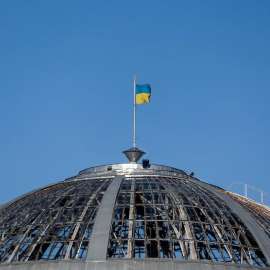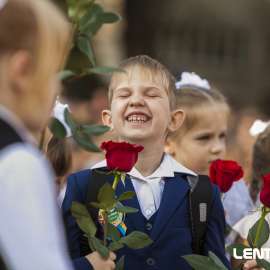
How an engineer, whose patents are cited by Apple and Samsung, is creating an optical interface capable of "understanding" people.
She started with microchips and smart rings, and has now developed technologies that can read brain signals using light.
Patents that Ahead of Tech Giants
Підписуйтеcь на наш Telegram-канал Lenta.UA - ЄДИНІ незалежні новини про події в Україні та світі
Long before the industry even began talking about "smart rings," Natalia Segal had already filed patents for devices that activate when the wearer approaches and verify their identity through movements and biometric signals.
These inventions, now cited by Apple, Samsung, and Microsoft, described an architecture that allows a device to unlock a phone, car, or smart home system only when it is actually worn by the wearer and identifies them as "one of its own."
This idea, once considered exotic, has now become an industry standard.
While major brands rush to market their "smart rings," Segal's concepts serve as a reminder: true innovation emerges long before it becomes mainstream.
AI that sees life before it begins
Segal's path wasn't limited to consumer electronics.
After working at Amazon, where her team optimized models for voice-activated purchases via Alexa, and participating in the development of high-performance computing algorithms at NextSilicon, Natalia turned to medicine.
At the Israeli startup Fairtility, she helped create an AI platform for embryo analysis, which helps IVF clinics predict embryo viability.
The algorithms, later integrated into the CHLOE EQ system, brought transparency and explainability to the field, replacing subjective physician assessments with analytical data.
"It's rare to find someone who is equally confident in both engineering and biology," says one of her colleagues.
Light that reads the brain
Today, Natalia Segal explores new frontiers of biomedical artificial intelligence at Bar-Ilan University under the guidance of renowned optician and inventor Professor Ze'ev Zalevsky.
Her research goes beyond conventional neurotechnology: it explores contactless reading of brain activity.
The method is based on laser-induced speckle patterns: tiny reflections of light that can be used to detect oscillations in the cerebral cortex without electrodes or implants. In her research, light is transformed into data, and data into understanding.
Imagine "hearing" a person's inner speech using a beam of light.
Segal is convinced that this will one day allow people who have lost the ability to speak—after a stroke or with Parkinson's disease—to communicate with the world again.
A Culture of Curiosity
All of Natalia Segal's projects are characterized by one thing: an inexhaustible curiosity.
Many years ago, she founded the startup Sphoonx, which developed gamified educational apps for children with ADHD—long before the term "AI in education" became fashionable.
These apps were downloaded by over 100,000 users, and were pre-installed on educational tablets in a number of schools.
These early initiatives, which combined an engineering approach with human empathy, shaped her philosophy: creating technology for the benefit of people, not for the sake of technology itself.
Looking to the Future
Today, Segal is focused not on commercialization, but on deep scientific research.
Her team is exploring what artificial intelligence can learn from analyzing light, experimenting with new neural network architectures, from lightweight neural networks to transformer-based autoencoders. The goal is to bring remote sensing of brain activity closer to real-world applications.
The scientific community is closely following new publications from the Zalewski laboratory—research that could shape the development of optical brain-computer interfaces in the coming years.
They say Natalia Segal is designing the future. In reality, she's building its foundation—one patent, one dataset, one model at a time.
Читайте также: Who Was First: Samsung or Apple?
Евгений МедведевНовости
Под конец февраля в Украине грянет похолодание
06:55 25 фев 2026.
Глава ВВК в Каменском заработала на уклонистах более $300 тысяч
04:39 25 фев 2026.
Волынского таможенника обвиняют в махинациях с автомобилями
02:21 25 фев 2026.
В НБУ анонсировали смягчение валютных ограничений для населения
00:05 25 фев 2026.
Уиткофф назвал планируемое время переговоров между Украиной, США и РФ
23:30 24 фев 2026.
В развлекательном центре Львова массово отравились дети
23:00 24 фев 2026.
Как определить свою норму ночного сна, объяснили сомнологи
22:10 24 фев 2026.
Путин раскрыл «оперативную информацию» о возможных подрывах нефтепроводов в Черном море
21:45 24 фев 2026.
На Львовщине прокурор за рулем сбил детей – один погиб
21:20 24 фев 2026.































































